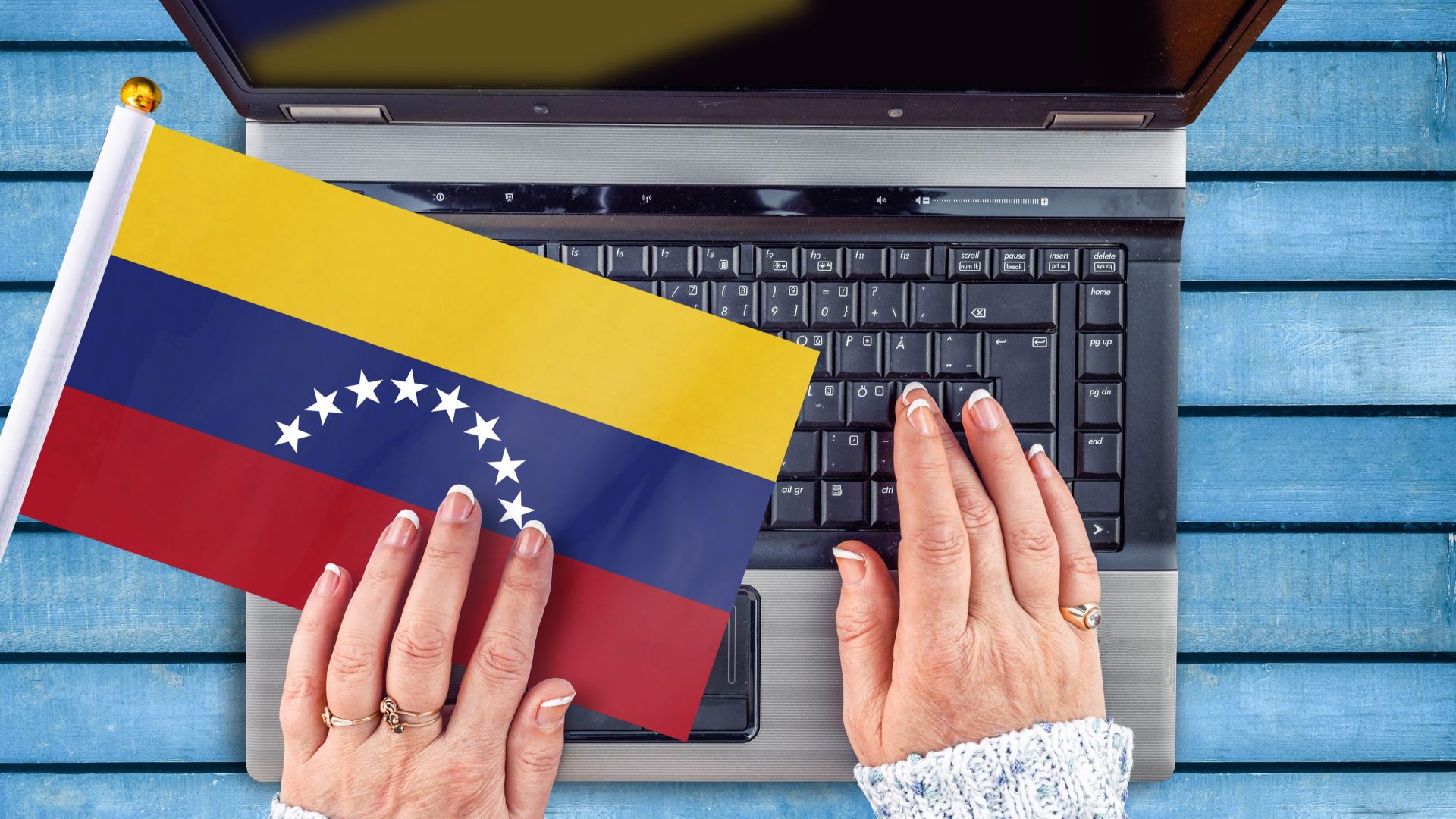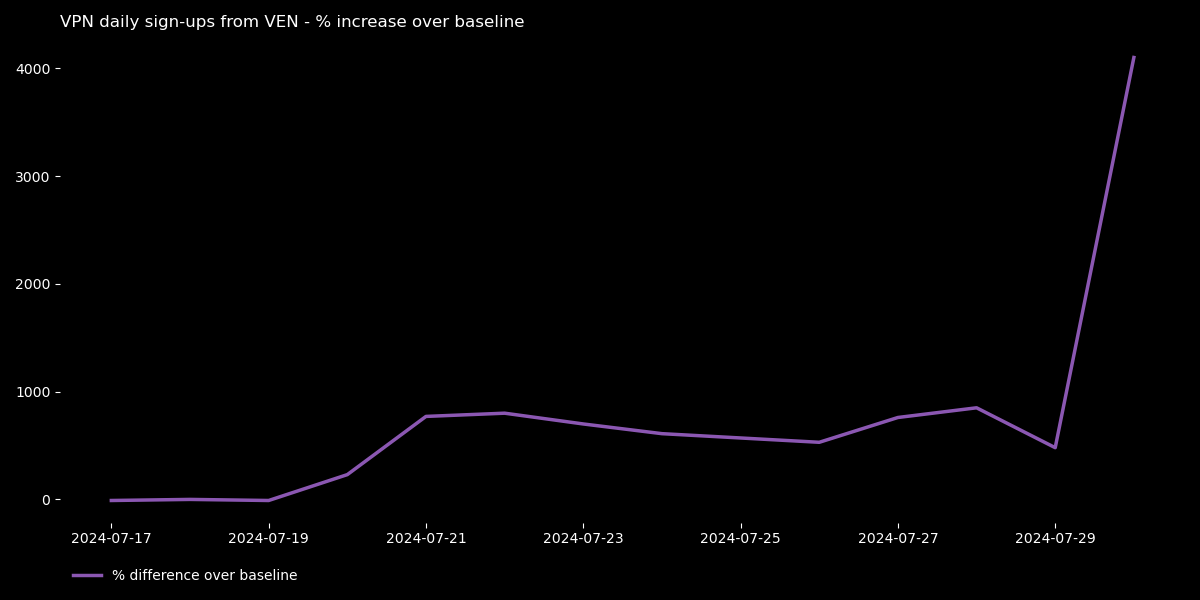VPN usage in Venezuela soars in the aftermath of presidential elections
Proton VPN confirmed a 4000% spike in VPN sign-ups

VPN usage in Venezuela has skyrocketed in the aftermath of the presidential elections held last Sunday, July 28, 2024.
One of the best VPN services around, Proton VPN, saw a spike of 4000% sign-ups above normal level so far, with downloads still soaring at the time of writing.
The provider confirmed to TechRadar that, over the last few days, its Android VPN app has been the most downloaded application in the Venezuelan Android app store across all categories. Likewise, Proton VPN is also among the top three most downloaded apps on Apple's App Store.

"Usually, the most downloaded apps are social media and communication apps. The fact that these have now been surpassed by a VPN app is unprecedented and shows how people in Venezuela are turning to tech companies like Proton to maintain their basic freedoms," David Peterson, General Manager at Proton VPN, told me.
As people increasingly resort to VPN apps, though, Venezuelan authorities appear to have tried to clamp down on VPN usage in the country. Ahead of the elections, some Proton users lamented issues accessing its VPN apps. Peterson also told me Proton VPN had been the target of a disinformation campaign, incorrectly claiming it was a tool to harvest data. Yet, "efforts to block Proton VPN have been ineffective to date," he added.
If the situation changes and you encounter issues using a Proton VPN in Venezuela – or any other service, for that matter – here are some tips on getting around potential blocks.
Why is Venezuela VPN usage so high?
"VPNs were already a much-used tool in Venezuela because the media is heavily censored there, and baseline levels were already very high," Peterson told me, adding that this latest spike shows how such software is now essential in Venezuela.
Many websites have reportedly been blocked since last Sunday, in fact, as protests spread across the country.
On July 28, UK-based internet watchdog NetBlocks reported that multiple Venezuela ISPs began throttling access to all language editions of Wikipedia. An incident that, according to experts, matched "a similar pattern observed in 2019." Among others, digital rights advocacy group Access Now confirmed further website blockage, including against an opposition portal to compare the voting results and a local civil society site.
Proton recorded VPN usage spikes in 12 countries since January alone. Similar to the situation in Venezuela, most of them were linked to internet restrictions enforced amid social unrest. These include Bangladesh in July, Kenya at the end of June, New Caledonia in May, and Senegal in February.
Luckily, a virtual private network (VPN) can help against these internet disruptions.
For the less techie users out there, a VPN is security software that encrypts your internet connections, boosts your online privacy, and spoofs your real IP address. The latter function is exactly why people use these services to reliably access news outlets, social media platforms, and other services when restrictions hit.
This is also the reason why Proton launched a free VPN network of dedicated anti-censorship servers in Venezuela a week before and after the presidential elections as part of its election support initiative.
If you're in Venezuela, all you need to do is choose a server located outside the country. As a result, you will trick local ISPs into granting you access to restricted content.
"We recommend people in Venezuela have a VPN downloaded in advance, should internet censorship get even tighter in the country," said Peterson, adding that Venezuelan citizens are also creating and sharing how-to guides for their fellow citizens.
For more information in Spanish on how to use Proton VPN, I recommend checking some translated guides, and a full install and how-to video here.
Disclaimer
We test and review VPN services in the context of legal recreational uses. For example: 1. Accessing a service from another country (subject to the terms and conditions of that service). 2. Protecting your online security and strengthening your online privacy when abroad. We do not support or condone the illegal or malicious use of VPN services. Consuming pirated content that is paid-for is neither endorsed nor approved by Future Publishing.

Chiara is a multimedia journalist committed to covering stories to help promote the rights and denounce the abuses of the digital side of life – wherever cybersecurity, markets, and politics tangle up. She believes an open, uncensored, and private internet is a basic human need and wants to use her knowledge of VPNs to help readers take back control. She writes news, interviews, and analysis on data privacy, online censorship, digital rights, tech policies, and security software, with a special focus on VPNs, for TechRadar and TechRadar Pro. Got a story, tip-off, or something tech-interesting to say? Reach out to chiara.castro@futurenet.com